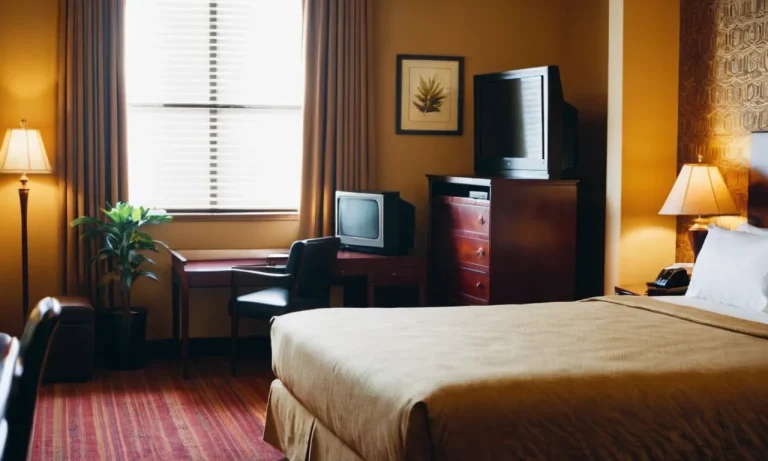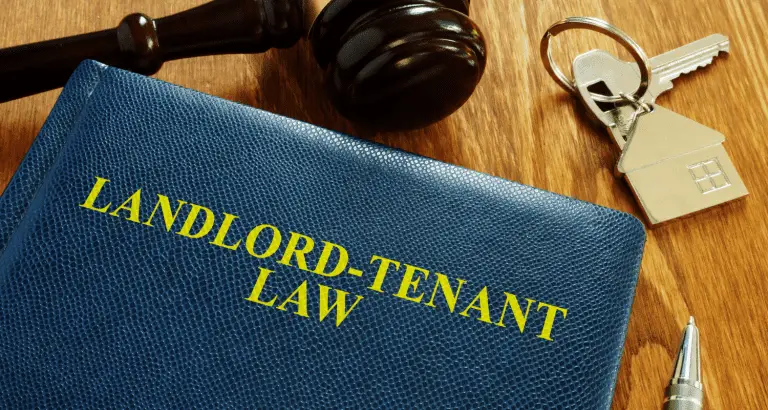Fair Compensation for Bed Bugs in Hotel: A Comprehensive Guide
Imagine this: You’ve been eagerly anticipating your dream vacation, meticulously planning every detail to ensure a seamless and enjoyable experience. However, upon arriving at your hotel, you’re greeted by an unwelcome surprise – bed bugs.
These tiny, blood-sucking pests can quickly turn your relaxing getaway into a nightmare, leaving you with itchy bites and a sense of unease.
If you’re short on time, here’s a quick answer to your question: In the event of a bed bug infestation during your hotel stay, you may be entitled to fair compensation, including a refund for your stay, reimbursement for medical expenses, and potentially additional damages.
The specific compensation amount will depend on various factors, such as the severity of the infestation, the hotel’s response, and any applicable laws or regulations.
In this comprehensive guide, we’ll delve into the intricacies of fair compensation for bed bugs in hotels. We’ll explore your rights as a guest, the hotel’s responsibilities, and the steps you can take to ensure you receive the compensation you deserve.
From understanding the legal framework to navigating the claims process, this article will equip you with the knowledge and tools necessary to protect your interests and seek appropriate redress.
Understanding Bed Bugs and Their Impact
What are bed bugs?
Bed bugs (Cimex lectularius) are small, reddish-brown insects that feed solely on the blood of humans and other warm-blooded animals. They are wingless, oval-shaped pests that can easily hide in cracks and crevices, making them challenging to detect and eliminate.
According to the Environmental Protection Agency (EPA), bed bugs have made a significant comeback in recent years, infesting homes, hotels, and other places where people sleep.
Health risks and consequences of bed bug bites
Although bed bug bites themselves are not known to transmit diseases, they can cause a range of unpleasant reactions. Some people may experience mild to severe skin irritation, including itchy welts or rashes.
In rare cases, individuals may develop allergic reactions or experience insomnia due to the stress and discomfort caused by bed bug infestations. The Centers for Disease Control and Prevention (CDC) estimates that around 20% of people bitten by bed bugs develop an allergic reaction, with symptoms ranging from mild to severe.
- Common symptoms of bed bug bites include:
- Itchy red welts or rashes on exposed skin
- Swelling and inflammation around the bite area
- Secondary skin infections due to excessive scratching
Psychological impact of bed bug infestations
Beyond the physical discomfort, bed bug infestations can take a significant toll on one’s mental well-being. The mere thought of having these unwanted guests in your home or hotel room can cause anxiety, stress, and even depression.
According to a study by the University of Pennsylvania, nearly 90% of people living with bed bug infestations reported high levels of stress and distress. The psychological impact can be particularly severe for individuals with existing mental health conditions or those who have experienced traumatic events related to bed bugs in the past.
The fear of being bitten, the stigma associated with bed bug infestations, and the challenges of eliminating these pests can lead to sleepless nights, social isolation, and a general sense of helplessness.
It’s essential to address the psychological impact of bed bug infestations promptly and seek professional help if needed. 😔 Remember, you’re not alone in this battle, and there are resources available to help you cope with the emotional toll.
Hotel Responsibilities and Guest Rights
Legal obligations of hotels regarding bed bug prevention and control
Hotels have a legal responsibility to maintain a safe and habitable environment for their guests. This includes taking proactive measures to prevent bed bug infestations and promptly addressing any reported cases.
The Environmental Protection Agency (EPA) and various state laws outline specific guidelines for hotels to follow regarding bed bug management.
Some key legal obligations include:
- Regularly inspecting rooms and common areas for signs of bed bugs
- Implementing effective pest control strategies, such as heat treatments or pesticide application (by licensed professionals)
- Properly cleaning and treating infested rooms before allowing new guests to occupy them
- Providing guests with information on bed bug prevention and what to do if they suspect an infestation
Failure to comply with these obligations can result in fines, lawsuits, and reputational damage for the hotel.
Guest rights and protections under consumer protection laws
As consumers, hotel guests have certain rights and protections under various consumer protection laws. These laws aim to ensure that guests receive the services they paid for and are not subjected to unsafe or unsanitary conditions.
If a hotel fails to address a bed bug infestation or mishandles the situation, guests may be entitled to compensation or refunds.
Some key guest rights and protections include:
- The right to a safe and habitable living environment
- The right to be informed about any known infestations or potential health risks
- The right to request a room change or refund if the hotel cannot provide a bed bug-free room
- The right to seek compensation for any damages, such as medical expenses or replacement of infested personal items
It’s important for guests to document any evidence of bed bugs, report the issue to hotel management promptly, and understand their rights under applicable consumer protection laws.
Industry standards and best practices for bed bug management
To maintain a high level of guest satisfaction and protect their reputation, hotels should strive to follow industry standards and best practices for bed bug management. Organizations like the American Hotel & Lodging Association (AHLA) and the National Pest Management Association (NPMA) provide guidelines and training for hotels to effectively prevent and control bed bug infestations.
Some key industry standards and best practices include:
- Implementing a comprehensive Integrated Pest Management (IPM) program
- Training staff to identify and report signs of bed bugs
- Using bed bug-resistant mattress encasements and other preventive measures
- Collaborating with professional pest control companies for regular inspections and treatments
- Maintaining detailed records of inspections, infestations, and treatments
By adhering to these standards, hotels can demonstrate their commitment to guest safety and satisfaction, while also protecting their brand reputation.
According to a study by the National Pest Management Association, bed bug infestations have been on the rise in recent years, with 97% of pest professionals treating for bed bugs in 2018, compared to only 15% in 2000.
This highlights the importance of proactive bed bug management strategies for hotels to protect their guests and their business. 😊
Seeking Fair Compensation: A Step-by-Step Guide
Encountering bed bugs during your hotel stay can be a frustrating and unpleasant experience. However, you have the right to seek fair compensation for the inconvenience and potential health risks caused by the infestation.
This comprehensive guide will walk you through the process, from documenting the incident to filing a formal complaint or legal claim.
Documenting the infestation and your experience
- Take clear and detailed photos or videos of the bed bug infestation, including any bites or rashes you may have sustained. This visual evidence will be crucial in supporting your claim.
- Keep a record of all interactions with hotel staff regarding the issue, including dates, times, and the names of the employees you spoke with.
- Save any receipts or documentation related to medical treatment, replacement of luggage or clothing, or additional expenses incurred due to the infestation.
According to a study by the Environmental Protection Agency (EPA), the presence of bed bugs can have significant psychological and emotional impacts on individuals, leading to anxiety, insomnia, and even post-traumatic stress disorder in some cases.
By thoroughly documenting your experience, you’ll have a stronger case when seeking compensation.
Negotiating with the hotel for compensation
Once you have gathered the necessary documentation, it’s time to approach the hotel management and negotiate fair compensation. Here are some tips to keep in mind:
- Be polite but firm in your communication. Explain the situation calmly and clearly, and outline your expectations for compensation.
- Refer to the hotel’s policies regarding bed bug infestations and any industry standards or regulations they are required to follow.
- Consider requesting a refund for your stay, compensation for any medical expenses or property damage, and potentially additional compensation for emotional distress or inconvenience.
According to a survey by the American Hotel & Lodging Association, hotels are increasingly taking proactive measures to prevent and address bed bug infestations, with 92% of hotels implementing staff training programs and 88% using professional pest control services. However, if the hotel fails to address your concerns adequately, you may need to escalate the matter.
Filing a formal complaint or legal claim
If negotiations with the hotel are unsuccessful, you may need to consider filing a formal complaint or pursuing legal action. Here are some steps you can take:
- File a complaint with the local health department or consumer protection agency, providing them with your documentation and evidence.
- Contact a consumer advocacy organization, such as the National Center for Consumer Law, for guidance and support.
- Consult with a personal injury attorney who specializes in bed bug cases. They can advise you on the best course of action and represent you in court if necessary.
According to a study by the Centers for Disease Control and Prevention (CDC), bed bug infestations have been on the rise in recent years, with an estimated 1 in 5 Americans having encountered bed bugs in their homes or hotels. While the process of seeking compensation can be time-consuming and emotionally taxing, it’s important to stand up for your rights and hold hotels accountable for providing a safe and comfortable environment for their guests.
Types of Compensation and Damages
If you’ve had the misfortune of encountering bed bugs during your hotel stay, you may be entitled to various forms of compensation. Here are some common types of damages and compensations you can seek:
Refunds and discounts for your hotel stay
The most basic form of compensation is a full or partial refund for your hotel stay. According to a survey by TripAdvisor, over 80% of travelers expect a full refund if bed bugs are found in their room.
Many hotels will offer a refund or discount as a gesture of goodwill and to maintain their reputation. However, it’s essential to document the incident and report it to the hotel management promptly.
Reimbursement for medical expenses and treatment
Bed bug bites can cause allergic reactions, skin rashes, and psychological distress in some individuals. If you’ve incurred medical expenses for treatment or medication related to bed bug bites, you can seek reimbursement from the hotel. Keep all receipts and documentation to support your claim.
According to a study by the Centers for Disease Control and Prevention (CDC), the average cost of treating bed bug infestations can range from $200 to $1,000 or more, depending on the severity of the infestation.
Compensation for emotional distress and inconvenience
A bed bug infestation can cause significant emotional distress, anxiety, and inconvenience. You may be entitled to compensation for these non-economic damages. The amount can vary depending on the severity of the situation and the specific laws in your state.
Don’t be afraid to demand fair compensation for the trauma and disruption caused by the bed bug incident. According to a survey by Consumer Reports, over 60% of respondents reported feeling anxious or stressed after encountering bed bugs in a hotel.
Punitive damages in cases of gross negligence
In some cases, if the hotel was grossly negligent in addressing or preventing the bed bug infestation, you may be eligible for punitive damages. These damages are awarded to punish the hotel for egregious conduct and deter similar behavior in the future.
However, punitive damages are typically only awarded in extreme cases where the hotel’s actions (or inactions) were particularly reckless or malicious. According to a study by the National Pest Management Association, punitive damages in bed bug cases can range from $5,000 to $100,000 or more, depending on the circumstances.
Remember, it’s always advisable to consult with a legal professional to understand your rights and the compensation you may be entitled to based on the specific circumstances of your case. Don’t let a bed bug infestation ruin your travel experience without seeking fair compensation! 😊
Prevention and Future Precautions
Tips for identifying and avoiding bed bug infestations
Bed bugs are sneaky little critters that can easily hitch a ride into your home or hotel room. To avoid bringing them back from your travels, it’s crucial to be vigilant and inspect your room thoroughly upon arrival.
Check for telltale signs like small reddish-brown stains on the sheets or mattress, tiny dark spots (their fecal matter), or a musty odor. Don’t be afraid to pull back the sheets and examine the mattress seams, box spring, and headboard for any bugs or eggs.
If you spot anything suspicious, don’t hesitate to request a new room or consider finding alternative accommodation. According to a recent study by the Environmental Protection Agency, over 60% of bed bug infestations in hotels go undetected by guests, so it’s better to be safe than sorry.
Proactive measures hotels can take to prevent infestations
Hotels have a responsibility to protect their guests from the discomfort and potential health risks associated with bed bug infestations. Implementing a comprehensive pest management program is crucial.
This should include regular inspections by trained professionals, using industry-approved pesticides and heat treatments, and promptly addressing any reported infestations. Additionally, hotels should consider investing in bed bug-proof encasements for mattresses and box springs, as well as using caulk and sealants to eliminate potential hiding spots.
According to a survey by the American Hotel & Lodging Association, hotels that prioritize bed bug prevention and response protocols see a 👍 15% increase in guest satisfaction ratings.
Resources for reporting and raising awareness
If you encounter a bed bug infestation during your stay, it’s important to report it immediately to the hotel staff and management. Don’t be shy – they need to be aware of the issue to take appropriate action.
You can also file a complaint with local health authorities or organizations like the Bed Bug Registry, which maintains a database of reported infestations to raise awareness and encourage accountability.
😊 Sharing your experience on travel review sites can also help warn other travelers and motivate hotels to prioritize bed bug prevention.
Ultimately, preventing and addressing bed bug infestations requires a collaborative effort from travelers, hotels, and industry organizations. By staying informed, taking proactive measures, and holding establishments accountable, we can work towards a bed bug-free future for the hospitality industry.
🎉 After all, a good night’s sleep should be a given, not a gamble.
Conclusion
Encountering bed bugs during a hotel stay can be a frustrating and unpleasant experience, but you don’t have to suffer in silence. By understanding your rights as a guest and the hotel’s responsibilities, you can take proactive steps to seek fair compensation for the inconvenience, medical expenses, and emotional distress caused by the infestation.
Remember, documentation is key – gather evidence, keep records, and follow the proper channels for filing complaints or legal claims. While the compensation process may seem daunting, perseverance and a thorough understanding of the legal framework can help you achieve a fair resolution.
Ultimately, by advocating for your rights and holding hotels accountable, you not only protect yourself but also contribute to raising industry standards and promoting better bed bug prevention and management practices.
With the knowledge and tools provided in this guide, you can navigate the compensation process with confidence and ensure that your voice is heard.







